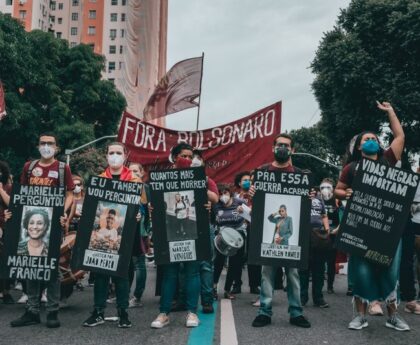Supreme Court Justice Clarence Thomas’s Aide Received Payments from Lawyers
New revelations have emerged regarding Supreme Court Justice Clarence Thomas and his close ties to lawyers who argue cases in front of him. According to Venmo transactions, several lawyers who have had business before the Supreme Court, including one who successfully argued against race-conscious admissions at universities, made payments to Justice Thomas’s former aide, Rajan Vasisht. These payments were made in connection with Thomas’s 2019 Christmas party, although the purpose of the funds remains unclear.
The lawyers who made the Venmo transactions include prominent figures such as Patrick Strawbridge, a partner at Consovoy McCarthy; Kate Todd, who served as White House deputy counsel under Donald Trump and is now a managing partner of Ellis George Cipollone’s law office; Elbert Lin, the former solicitor general of West Virginia; and Brian Schmalzbach, a partner at McGuire Woods who has argued multiple cases before the Supreme Court. Other lawyers who made payments include Manuel Valle, a graduate of Hillsdale College and the University of Chicago Law School, and Liam Hardy, who now serves as an appeals court judge for the armed forces.
Ethical Concerns
Legal experts are raising red flags about these payments, citing the potential ethical issues they raise. Richard Painter, former chief White House ethics lawyer in the George W. Bush administration, criticized the practice of lawyers sending money to the Supreme Court via Venmo. Painter argues that it is not appropriate for former Thomas law clerks to pay for the justice’s Christmas party, as this could create the perception of favoritism or influence.
Thomas has faced ongoing ethics scandals, including revelations that he has had close ties to a wealthy billionaire donor, Harlan Crow. The donor has reportedly paid for lavish holidays, purchased Thomas’s mother’s home, and funded the education of Thomas’s great-nephew. These stories have sparked calls for the passage of new ethics rules.
The Influence of Former Clerks
Justice Thomas is known for his close relationships with his former clerks, who have gone on to serve in senior positions throughout the legal system. A 2019 article in The Atlantic highlighted the extensive network of former Thomas clerks and mentees, noting that they may give Thomas an “outsize voice” in the legal system for years to come.
Editorial and Advice
The latest revelations about payments from lawyers to Justice Thomas’s former aide raise pertinent questions about the potential influence and favoritism in the legal system. It is crucial for the integrity of our judiciary that justices maintain independence and avoid any appearance of impropriety.
The Supreme Court should urgently address these ethical concerns by establishing clearer rules regarding financial interactions between justices, court staff, and lawyers who appear before them. Transparency and accountability are vital to maintaining public trust and confidence in the judiciary.
Additionally, Congress should consider passing new ethics regulations that apply to the Supreme Court, similar to those that apply to lower federal courts. While justices enjoy lifetime appointments and are not subject to the same ethical constraints as judges in lower courts, it is essential to ensure that the highest court in the land upholds the highest standards of ethical conduct.
Moreover, the legal profession itself must reflect on the potential consequences of these payments. Lawyers have a duty to uphold the integrity of the justice system and avoid any actions that could undermine public trust. Making payments to justices or their aides, especially when there is business before the court, raises serious concerns about the fairness and impartiality of the legal process.
In conclusion, the recent revelations regarding payments to Justice Clarence Thomas’s former aide underscore the urgent need for increased transparency and stronger ethical safeguards within the Supreme Court. The independence and credibility of our judiciary depend on maintaining the highest standards of integrity and avoiding any perception of impropriety or bias. We must seriously consider implementing new rules and regulations that will ensure the continued trust of the American people in our justice system.

<< photo by Mak_ jp >>
The image is for illustrative purposes only and does not depict the actual situation.
You might want to read !
- Los Angeles Dodgers Woo Multi-Sport Talent with Draft Pick Surprise
- Dissecting the Tragic Case: Behind the Murder of Randy Travis Lighting Director by His Wife
- The Impact of Zayn Malik’s Appearance on ‘Call Her Daddy’: Analyzing the Pop Culture Crossover
- “Defining Equality: Analyzing Massachusetts’ Responses to the Supreme Court’s LGBTQ Rights Ruling”
- Supreme Court’s Decision Deepens Inequality in LGBTQ Rights
- Supreme Court Delivers Blow to Biden’s Student Loan Forgiveness Plan
- “The Spectacular Highs and Missed Opportunities: Reviewing ‘Mission: Impossible — Dead Reckoning Part One’”
- “Mark Zuckerberg’s Unconventional Path to Success: Training with UFC Champions Israel Adesanya”
- Tangled Lives: The Tragic Consequences of Deception
- “The Unforgettable Enduring Legacy of Bobby Bonilla: A Financial Lesson for the Ages”
- “Understanding the Impact of Biden’s Student Debt Plan: A Breakdown and Analysis”
- The Impact of Biden’s Student Debt Plan: A Deep Dive into the Proposal
- The Continuing Fallout from Justice Clarence Thomas’ Confirmation Hearings
- The Growing Threat: North Korea’s Latest Intercontinental Ballistic Missile Test
Title: North Korea’s Latest ICBM Test Raises Alarms
- “A Historic Victory: Allisen Corpuz Claims First LPGA Title at U.S. Women’s Open”
- Sha’Carri Richardson: Bold Statement or Distraction?




